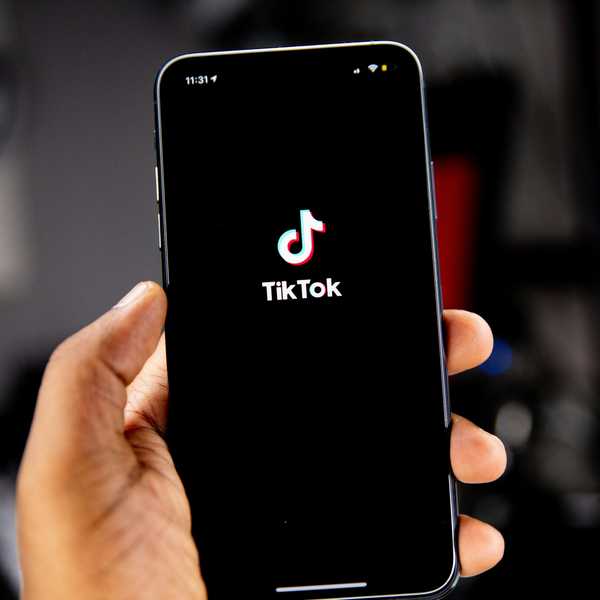
By David Farrell
CMW brings RadioDays to North America next June
Canadian Music Week (CMW) has teamed up with the massively successful organizers of Radiodays Europe to jointly host Radiodays North America in Toronto, June 8-9.
Radiodays North America is set to take at the Harbour Castle Westin Hotel as part of the weeklong CMW conference, bringing keynote speakers and panelists from around the globe to the city to discuss all facets of over-the-air and digital broadcasting and podcasting from executive leadership and workplace diversity to innovation, technology, talent, programming, marketing and revenue growth.
“We are thrilled to be able to bring the Radiodays Europe brand and its expert international content to North America,” said Peter Niegel, General Manager for Radiodays Europe, in a release. “Toronto is the ideal location to bring everyone together to ensure that we as an industry move forward with strategies for the future.”
Partners in Radiodays North America include Bell Media, Corus, Rogers, Stingray, CBC, Sirius XM, Indie88, Slaight Music, the OAB and others.
More details on this showcase event can be found here.
Whatever happened to Canada’s most powerful media mogul?
George McCullagh once owned three of the most important newspapers in Toronto, part of the Toronto Maple Leafs and Argonauts, and rubbed shoulders with the country's elite - all despite coming from very modest beginnings. Mark Bourrie has documented McCullagh's life in his new book, Big Men Fear Me: The Fast Life and Quick Death of Canada's Most Powerful Media Mogul.
Is the news turning away audiences?
New research shows that news coverage of world events is not captivating audiences the way it once did. But why do people seem to be increasingly tuning out the news? For insights, The Agenda's Steve Paikin who discusses the topic with Adam Mastroianni, Post-Doctoral Fellow at the Columbia School of Business; investigative journalist Amanda Ripley; and Colette Brin, director of the Center for Media Studies at Laval University.
CRTC takes the next step to create more mobile wireless competition in Canada
The CRTC is implementing measures to accelerate competition in new areas while regional wireless providers build out their networks. These measures will govern the relationships between the regional providers and Bell Mobility, Rogers Communications, Telus and SaskTel.
In 2021, the CRTC established a policy to better enable MVNOs to be launched in the Canadian market. An MVNO is a company that uses the networks of another Canadian wireless service provider to offer competitive services and greater choice to more Canadians.
The three national wireless providers – Bell Mobility, Rogers and Telus – and SaskTel in Saskatchewan will be required to provide access to their respective networks to regional wireless carriers. The purpose of the policy is to enable regional competitors to use the networks of the incumbents to provide greater while they build out their own networks.
Although retail prices for mobile services in Canada are generally going down, a CRTC review found that competition remains limited and that new providers trying to enter the market face barriers in launching services.
The CRTC has made decisions on the terms and conditions that will govern the MVNO access service made available to regional wireless providers by Bell Mobility, Rogers and Telus, as well as SaskTel. Wholesale rates must be negotiated between the providers.
advertisementThis service will be mandated by the CRTC for seven years, which will give the regional providers time to build and expand their wireless networks.
Rates for MVNO access are to be commercially negotiated, but the CRTC will act as an arbitrator if necessary.
Prices for mobile wireless services have been coming down in recent years. For instance, the average monthly cost of a 5GB mobile package dropped by 11% between 2016 and 2021, according to the CRTC’s Communications Market Reports.
Competition Bureau signals it is prepared to fight rather than settle over Rogers-Shaw deal
Analysts and lawyers who have read the thousands of pages of filings on this case say (Commissioner of Competition Matthew) Boswell holds an extremely weak hand. Rogers, Shaw and Quebecor will realize billions of dollars in economic efficiencies from combining their businesses – an argument that trumps consumer concerns in Canada – and create four national cellphone networks, preserving a key federal government policy goal. – Andrew Willis, The Globe and Mail
Toronto has a new alt print mag available for free at TTC subway stations
… A small group of dedicated writers, photographers and other media workers have banded together — without any financial backers — to give Toronto a "gritty, free magazine." – Sabrina Gamrot, blogTO
Cliff Dumas led group acquires Frontier Media
BTC USA Holdings Management, Inc., a company led by KUZZ Bakersfield morning host Cliff Dumas will acquire Richard and Sharon Burns’ Frontier Media LLC’s stations in Texarkana AR/TX and Juneau, Ketchikan, and Sitka AK in a series of deals valued at $1.3 million.
The first deal will see BTC purchase the Texarkana Radio Licenses LLC cluster for $420,000. – Radio Insight
"He is a bigot": Former Sportsnet host Tara Slone weighs in on Don Cherry
”He had some good points, probably, once upon a time. He has tons of charisma, which is why he stayed on the air for so long. But this incessant and nostalgic elevating of Don as some figure who we should look to as a hockey and political leader? Come ON.” – Tara Slone, Twitter (via Rob Williams, Offside
Triller launches metaverse platform for live music and sports
According to the company, the Metaverz (sic) will have multiple online spaces for fans where they can attend a virtual concert, go to a club or see a sporting event. The space will be open to everyone, allowing fans to also interact with their favourite celebrities and influencers. – Andi Ortiz, The Wrap
Kanye West to buy right-wing social network Parler
“In a world where conservative opinions are considered to be controversial we have to make sure we have the right to freely express ourselves,” the rap star said in a statement.
George Farmer, the chief executive of Parler’s parent company, Parlement Technologies, said: “This deal will change the world, and change the way the world thinks about free speech. Ye is making a groundbreaking move into the free speech media space and will never have to fear being removed from social media again.” – Alex Hern, The Guardian UK
Media’s epic fails
In the world of media and technology, epic fails are numerous and costly. For starters, there’s Rupert Murdoch, considered a financial (evil?) genius – by many. He had the vision to buy MySpace back in 2005 when it was a social media high-flyer. The price? $580 million.
Admittedly, ”a mistake,” the famous CEO of News Corp was later quoted about his decision: “We could have sold it for $6 million a month later.” In reality, he offloaded MySpace to an ad agency for $35 million six years later. It’s like a bad episode of “Succession.”
He’s not alone … – Fred Jacobs, Jacobs Media
Meta shutting down Facebook Instant Articles
Meta is turning off Facebook Instant Articles after seven years as the platform continues to draw away from supporting news publishers.
The switch-off, which will come in mid-April, follows reports that Meta plans to stop paying US publishers to include their content in the Facebook News tab. UK news brands have not yet been told the same, but their multi-year contracts still have more time to run. – Charlotte Tobitt, Press Gazette
Meta ordered to sell off Giphy
The U.K.’s Competition and Markets Authority (CMA) has ordered social media giant Meta to sell Giphy, having found that the deal to buy the platform “would limit choice for social media users and reduce innovation in the country’s display advertising.”
The ruling follows the announcement in 2020 that Meta had reached a deal worth around $315 million to acquire the GIF-making platform which came under scrutiny for faced claims of being anti-competitive to the U.K. market. – Stephen Lepitak, AdWeek
Washington AG seeks $25M fine over Meta’s political ads
Facebook parent Meta should be fined nearly $25 million for “repeatedly and intentionally” violating a state campaign-finance disclosure law, Washington Attorney General Bob Ferguson argues.
Meta “has spent years blatantly disregarding Washington’s Commercial Advertiser Law and making empty promises of transparency,” the attorney general's office writes in papers filed last week with King County Superior Court Judge Douglass North. “The time has come to hold Meta accountable.” – Wendy Davis, MediaPost
Freedom House report measures democratic governance in 29 countries
Our latest report, Beijing’s Global Media Influence: Authoritarian Expansion and the Power of Democratic Resilience, offers the most comprehensive assessment to date of Beijing’s global media influence and the ways in which democracies are responding. It draws on media investigations, interviews, scholarly publications, Chinese government sources, and on-the-ground research by local analysts in 30 countries, and includes in-depth case studies for each country, appraising the scale and scope of CCP media influence efforts and the strength of the local response. The report also offers recommendations on how democracies can improve their performance.

















